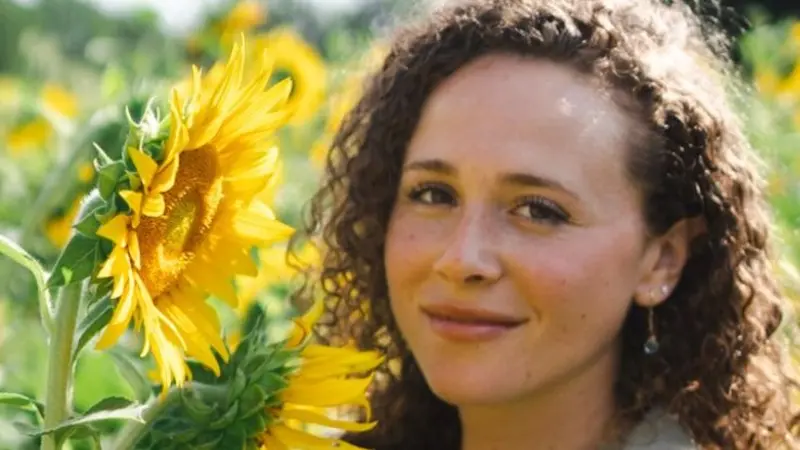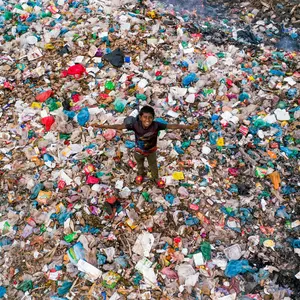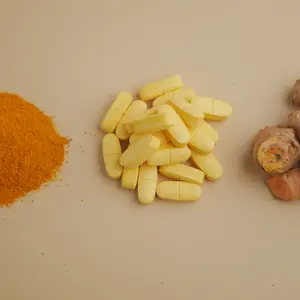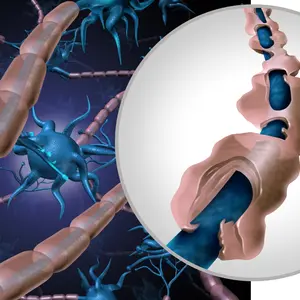

Food, Farming and Nutrition

Food, Farming and Nutrition
Regenerative Healthcare Movement
While the headlines may often seem like doom and gloom, it’s always encouraging to speak with rising industry leaders who are inspiring, passionate, and well-educated. Nadine Clopton is that and more. A Program Manager with Rodale Institute, Clopton is furthering the mission of the Institute’s founder, J.I. Rodale, who believed that healthy soil equals healthy food, which equals healthy people. Rodale Institute has been on the leading edge of the movement to promote a healthier, regenerative, and more responsible way of modern farming by conducting research into the cultivation of healthy, living soils.
During the last century, the rise of chemical-based agriculture has severely changed the way food is produced and we have failed to recognize its unintended consequences. Research has revealed that if we continue on this path, within the next 60 years, there may come a time when our soil gives out and we may be unable to feed our children and grandchildren. Thankfully, there is still time and positive transformation is possible through regenerative organic agriculture, which has its roots in Indigenous, traditional ecological knowledge.
In her role as Program Manager with Rodale Institute, Clopton combines her loves of health, advocacy, and the ecosystem. Learning about food as medicine was transformative in her own health journey with chronic illnesses, and it is Clopton’s hope that others are also able to experience the transformative sense of well-being and connection that comes through using food as “medicine.”
Outside of Rodale Institute, Clopton has served as a non-governmental organization (NGO) Youth Representative to the United Nations for over six years, was the first young person to serve as a Director on the Global NGO Executive Committee (GNEC, then the NGO DPI Executive Committee), and now serves as an elected Vice President of the Global NGO Executive Committee. She holds a Masters in Environmental Policy Design from Lehigh University.
[P]ositive transformation is possible through regenerative organic agriculture, which has its roots in Indigenous, traditional ecological knowledge.
Would you share about your past experience and how it led you to be the Program Manager of Rodale Institute?
I attended Lehigh University in Bethlehem, Pennsylvania, which had a partnership with the United Nations that connected students with NGOs that don't have the financial ability to have a full-time representative in New York. I had the incredible opportunity to serve as the NGO Youth Representative for Caring & Living As Neighbours (CLAN), whose focus is on health equity for children living with chronic health conditions in low- and middle-income countries, resource-poor settings, and systematically disadvantaged communities.
Spending time at the United Nations, I got to understand how all of the challenges we're facing are interconnected, and that's where I deepened my passion for climate justice, climate advocacy, public health, and health equity. That led to an opportunity to serve as a youth chair on the Global NGO Executive Committee and after my term was up, a colleague encouraged me to run to be a director.
I now serve as a vice president. Our work focuses on amplifying the stories of NGOs from around the globe that may not otherwise have their voices heard and building a stronger bridge between civil society and the United Nations, ensuring that civil society voices are included in key decision-making processes.
All of that work combines my loves of health, advocacy, inclusion, and our ecosystem and led to me finding my work-home at Rodale Institute. I finished my Master's in Environmental Policy Design during the pandemic and wanted to be part of both a social ecosystem and ecological ecosystem; Rodale Institute was the perfect fit. Their work stood out to me as being extraordinarily transformative and I wanted to support it in any way possible.
What are your goals and primary areas of focus at Rodale Institute?
The heart and soul of what I'm working on right now centers around connecting healthcare and agriculture with Rodale’s first-ever Regenerative Healthcare Conference.
We just wrapped up hosting our four-day inaugural Regenerative Healthcare Conference and it was a transformative gathering to say the least. Regenerative Healthcare operates at the intersection of soil health and human health. It seeks to address the common threads that are shared by skyrocketing rates of chronic disease and degenerative environmental stewardship practices—encompassing a deep dive into both challenges and solutions. Regenerative Healthcare as a conference provides a platform for people looking to deepen the connection between healthcare and agriculture.
I also run our Grow Clean Water program, which is a consumer education campaign funded by the William Penn Foundation that focuses on transitioning to regenerative organic agriculture and the links between regenerative organic farming and watershed health. Our watersheds are only as healthy as our soil and how we treat our land, so we're encouraging people to draw that connection.
Can you share the vision behind the Regenerative Healthcare Conference and what you hope to achieve?
We invited doctors, nurses, registered dieticians, nutritionists, and others with interests in health and well-being to the farm for four days to get their hands in the soil and learn about how soil health is directly correlated to human health and how food is “medicine.”
There are so many individuals who are linking health and agriculture together and the importance of food as “medicine,” but there are few spaces where people can convene and be in a community of practitioners dedicated to this kind of work. It was incredible to cultivate a space where we were able to drive that discussion and bring farmers and physicians to the table to learn from one another.
We were joined by luminaries like Dr. Michelle Perro, Dr. Mark Hyman, Dr. Maya Shetreat, Dr. Scott Stoll, Dr. Uma Naidoo, Dr. Monica Aggarwal, Dr. Ron Weiss, Dr. T. Colin Campbell, Dr. Rupa Marya, Christa Barfield, and Reginaldo Haslett-Marroquin, among others, who gave compelling lectures to our inaugural cohort.
To our knowledge, this is the first-ever medical conference to take place on a living, breathing, working farm. We’re passionate about the idea of getting doctors out of their practices and letting them get their hands in the soil. There's no better way to learn about the real, fundamental difference between conventional and regenerative organic agriculture than by picking up a scoop of soil in our conventional model and picking up a scoop of soil in our regenerative organic model.
We think that healing our planet begins with healing ourselves and how we relate to the planet and to one another, so through these tangible, in-person experiences I think we can we can get even closer to that ultimate goal of a healed system.
We think that healing our planet begins with healing ourselves and how we relate to the planet and to one another.
What does the regenerative healthcare movement mean for both human health and agriculture?
Regenerative healthcare carries potent “medicine” for a lot of the things that are ailing us in this country: the epidemic of chronic illnesses, the climate crisis, global food insecurity, and ecological health. We believe that healing our soil is a prerequisite for healing ourselves. Regenerative healthcare draws the link between agriculture and healthcare because we need those two systems to talk with one another, and the answers are right beneath our feet.
Mother Earth is the ultimate soil health expert. A gram of healthy soil can hold up to 10 billion microbes, and 78 antibacterial agents and 60 cancer drugs approved between 1983 and 1994 had their origins in soil! We need healthy soil.
For years, farmers have been led to believe, through no fault of their own, that pesticides, herbicides, and synthetic fertilizers are the best way to grow crops and amend the soil. Through these practices, we are degrading our topsoil. In addition, 30% of the world's arable land has become unproductive in the last 40 years due to overuse, depletion of vital nutrients, and soil erosion related to high use of synthetic inputs and practices such as tillage.
Rodale Institute’s Vegetable Systems Trial, a comparison research trial, studies conventional and regenerative organic farming methods on five different vegetables. Throughout the study, 26 different polyphenols, micronutrients, phytonutrients, and amino acids are being tested over the years to evaluate key nutrient density metrics and to deepen the link between the health of our soil and people.
Thankfully, there is traction on addressing how these things are interconnected with our health. Recently the ninth Circuit Court ruled that the EPA has to revisit its scheduling and assessment of glyphosate because right now it's considered safe in our country, but in many parts of the world it's acknowledged as a human carcinogen. Glyphosate has been found in 70% of water samples across America, as well as urine samples, soil samples, and even rain water samples and has been linked to the striking rise in autoimmune disorders.
We have data coming out of our 40-year Farming Systems Trial report, which just launched, that shows that organic farming can compete with conventional farming even in terms of affordability for farmers, so hopefully with improved awareness, our systems can shift and consumers can use their spending power to push the markets to more organic farming and nutrient dense food that doesn't harm our soil.
How do we better connect our farming, food, and healthcare systems?
The best thing we can do is take those three things out of a silo and look at them as part of a complex, interconnected web. In Rodale Institute’s “farm to hospital” model with St. Luke's University Health Network in eastern Pennsylvania, we have a working farm at one of St. Luke’s hospitals, and much of the produce grown there ends up on patients’ plates, in the cafeteria, or in a CSA that hospital employees can take home.
On average, medical school students in the U.S get only 19.6 hours of nutritional education, so there's a real gap in understanding the importance of eating nutrient dense food and the data behind it for improved health.
Jeff Moyer (CEO of Rodale Institute) often recounts a story from when he sat in on a governmental meeting and noticed that the Secretary of Agriculture was on the opposite side of the table of the Secretary of Health and Human Services, which is a perfect illustration of the separation that exists between agriculture and healthcare in our country.
They are so incredibly related and there's not even a thread in our healthcare system right now that looks at what pesticide or fertilizer exposure does over the long term to human health or at the impact of healthier food.
At Rodale Institute we’re hoping to build that bridge between agriculture and healthcare and invite doctors and farmers to be part of the cycle of healthcare: thinking about the health of our soil and the health and the nutrient density of what's on our plates.
How has regenerative healthcare evolved over the last couple of years? Can you share some recent accomplishments in regenerative healthcare?
I think the consciousness in this space is rising quickly. I'm seeing more people even in my own personal circles becoming more literate about these issues. I have a lot of hope that in the coming years our legislators will also see the value of shifting our systems to regenerative organic methods and building that bridge between food and health.
Currently, many of the functional and integrative medicine services, which incorporate the power of food as medicine, aren't as affordable and they are not tucked into our healthcare system in the same ways as conventional medical services, so hopefully in the next couple of years we’ll see a lot of expanding awareness of the benefits of this type of medicine, and then hopefully action will follow.
What’s next in your plans for the future of regenerative healthcare?
I hope regenerative healthcare can be an educational tool used to deepen the understanding of how we're interconnected to everything. If you think about true regeneration, it's a return to our roots and the way that we do things inherently as humans, offering reciprocity and care to our planet that sustains us and to one another because we're all in community with each other.
The intention is to infuse that kind of consciousness into the medical space and have it be a healing salve on our current systems: that we're all connected and nothing exists in a silo. I hope this educational tool is something that policy makers come to reference, and that medical schools and hospital systems can use it to deepen their own understanding of these interlinkages.
I feel very deeply that we're in a time of great remembering and, hopefully in our lifetimes or our children's lifetimes, will experience a renaissance of what it means to live in right relationship and reciprocity with the ecosystem and one another.
While Rodale Institute has been on the leading edge of a lot of the science, the original luminaries are Indigenous people and their traditional ecological knowledge. They have carried the torch and have been on the front end of the regenerative organic agricultural movement, beckoning us all back into that place of remembrance that we are part of an ecosystem—that we are not separate from nature but rather must figure out our roles as part of it.
I feel very deeply that we’re in a time of great remembering and, hopefully in our lifetimes or our children’s lifetimes, will experience a renaissance of what it means to live in right relationship and reciprocity with the ecosystem and one another.
What are some tips for consumers and practitioners to help the regenerative healthcare movement?
On the other side of the first ever Regenerative Healthcare Conference, I cannot begin to express just how important community is as we try to understand why our systems are broken and how we can play a role in their healing.
Building a community of care and a community of practice, wherever you are, around Regenerative Healthcare is key. We are unlearning and learning at the same time, which is made easier when supported in the warm embrace of community.
For everyone, practitioners and consumers alike, beginning to think about where your food comes from and how it was grown is key. Hippocrates once said that a physician should know something about the quality of the soil their patient’s food was grown in.
Get to know a farmer! Go get your hands in the soil, talk to your local farmers, and start to rebuild that web of connection and relationship. Look around you and see how the Earth responds when we're operating in a way that's regenerative and allows natural systems to thrive. And for practitioners, get curious! Start breaking out of the siloed worldview of health and medicine and learn about the potent “medicines” that are all around us in our food and our soil.


 By
By



